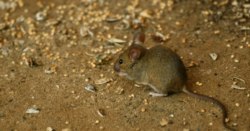Florida summers are host to many unwanted pests around the home. Flies, mosquitoes, ants… the list can seem endless. But there is one pest that may surprise you when discussing what to expect as the weather warms up: rodents. To many people, rodent infestations are synonymous with colder months. When the air is cold, the rodents want to move into where it is warm and use your home for harborage. And while this is true, it is important to remember rodents are active year-round. In the spring and summertime, rodents are much livelier than usual as they are actively breeding and searching for food. The warm weather provides them with an abundance of options when it comes to finding a new nesting spot, as well.
So why would they choose to infest your home? The answer is quite simple and that is food, water, and harborage. These three necessities are what any pest species needs to survive. And unfortunately for homeowners, our homes can provide all three of these needs to rodents. When these needs are met, rodents tend to stick around, causing damage to electrical wires, contaminating food, and ruining stored keepsakes. While it may be unnerving to think about a rodent infestation in the middle of summer, there are a few rules you can follow to help in preventing these unwelcome guests.
- Seal up any rodent food sources around the home including dog food, trash cans, and bags of chips, oats, grain, etc.
- Inspect your home for any potential entryways and seal them off with steel wool and spray foam. Keep in mind rodents such as rats can fit through a hole the size of a quarter.
- Make sure to keep your home clean and free of any leftover foods or trash. It is also important to keep outside trash receptacles at least 20 feet from the home.
While these tips can help in preventing a rodent infestation, it is not guaranteed that they will completely stop one. If you find yourself struggling to keep rodents out of your home this summer or would like further preventative advice, please reach out to your local pest control professionals for additional help.


